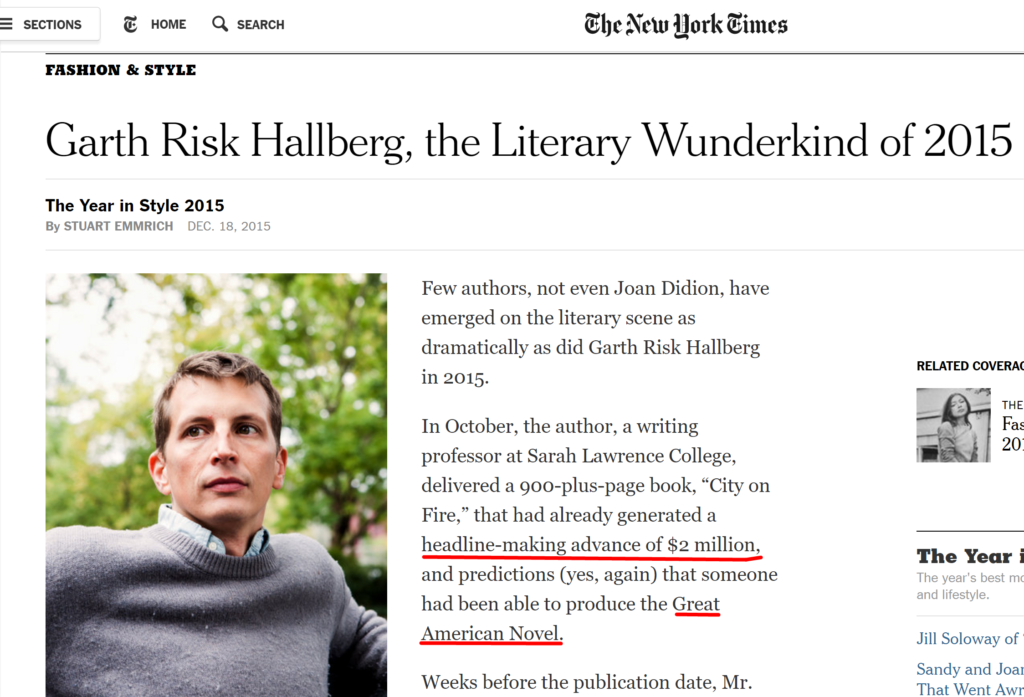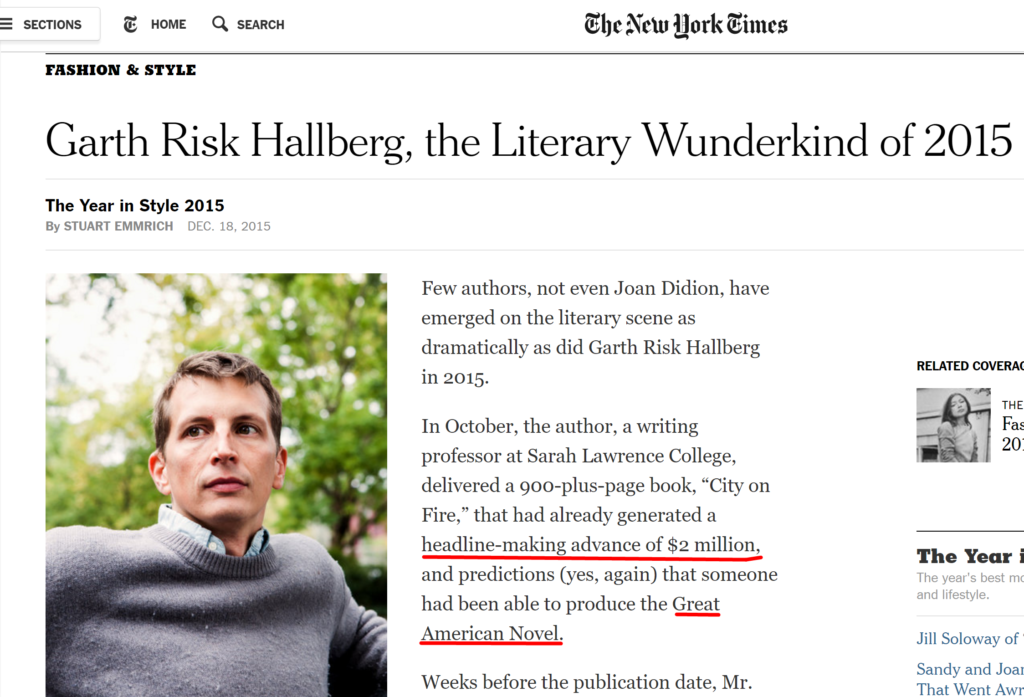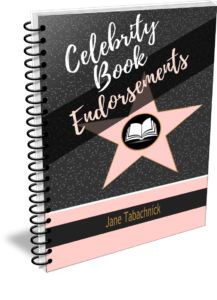Choosing the right self-publishing book company is an important decision in bringing your book to market successfully. If you’ve completed writing your book, it’s easy to think your author work is done. If you haven’t already decided on your publishing route, now it’s time to consider your self-publishing options. You’ll need a company to print, distribute and sell your book. However, that’s just one piece of the puzzle. When you self-publish a book, you take on many new responsibilities. You need to find the right self-publishing company, create an effective marketing plan, and choose the right printing options for your book. In this post, we’ll cover all the details you need to know when choosing a self-publishing company.
Self-publishing a book can seem like an intimidating process. After all, you’re essentially the publisher, marketer, and distributor all in one. But with the rise of self-publishing platforms such as Amazon Kindle Direct Publishing (KDP), it’s now easier than ever to get your book out there. In this blog post, we’ll cover everything you need to know about choosing the best self-publishing book company for your needs and goals.
While Amazon and other platforms make it easy to simply upload a file to publish a book, many of you will want a more professional-looking product. You want bookstore quality and a book that will speak to your ideal audience and get you the results you are seeking.
The kind of self-publishing companies we are talking about in this post
It is important to frame this conversation with what kind of self-publishing book companies we are talking about.
Some people refer to Amazon and Ingram Spark as self-publishing companies. While some of them offer services to help you with the self-publishing process, they are best as platforms you can use to self-publish [print, sell, distribute] your book. The downside to hiring a platform to also handle your self-publishing process and book launch or promotion is that these companies will only sell you what they offer, which may or may not be the best option for you and your book. They also may not provide the best bang for
your limited book budget.
What this post is about is self-publishing book companies that offer to guide you through self-publishing your book or offer done-for-you self-publishing.
We call it professional self-publishing. It’s also been called assisted self-publishing.
By using a separate company from the platforms to self-publish your book, you can get unbiased advice and are not get locked into one platform. You can take advantage of the best resources across multiple sites and increase your chances
of success for your book.
What exactly is self-publishing?
According to dictionary.com:self-publishing is a verb, gerund or present participle:
(of writer)publish (a piece of one’s work) independently and at one’s own expense.
There is only one key difference between self-publishing and traditional publishing: “If the author owns the rights and royalties, then the book is self-published. If the publishing company owns the rights and royalties, then the book is traditionally published.” [souce: Scribemedia]
Self-Publishing Paths – your three options to consider
Self-publish your book yourself by handling every aspect of preparing your book for publication, gathering all the necessary components, and uploading it to the selected publishing platforms
Hire a company or consultant to handle all aspects of your publishing- taking your completed final draft through successful publishing and book launch
Hire a company or consultant to handle a portion of the preparation or book setup for you
While self-publishing has made it easy for anyone to become a published author without needing a book publishing deal, there are a lot of moving parts, nuances, and micro-decisions to be made. Self-publishing requires a team to handle all the different, required aspects of publishing your book. These include title, cover design, book formats, categories, keywords, etc. While anyone can do it, the question is, do you want to earn your Ph.D. in publishing, or is it a better use of your time to hire a professional self-publishing company or self-publishing consultant to shepherd you through the process.
DIY or hire it out – Which type are you?
You may have a finished manuscript, but it’s not quite ready for publication. After all, you wouldn’t want to put your name behind something that wasn’t well-edited or even error-free.
As we’ve discussed, self-publishing is more than just uploading your manuscript to publishing platforms. It requires many different functions from book editing, design, copywriting, and so on. You can build your own team and then act as a project manager to oversee the process of finding your own book printing company, creating a professional cover and layout, creating front matter for your book, and several other important tasks. You can learn to do this yourself.
There are many resources available to help you understand the self-publishing process. Free resources include free courses, YouTube videos, and online Facebook groups. There are also paid classes and membership groups that provide training and a place to learn or ask questions as they come up.
As with any new endeavor, you’ll have to learn new skills and technologies. If you have never hired or assembled a team, you may not know what questions to ask, or how to properly vet the freelancers. Taking the time to understand the publishing process, being willing to ask questions, and having a measure of patience will help you succeed at doing it yourself.
Hire a self-publishing book company
The other option is to hire a self-publishing consultant or self-publishing company team to direct, oversee and manage the process of self-publishing your book.
When you hire a self-publishing book company or consultant, you get someone to advise you on what you need to do, and when it is needed. Then, they bring in their team as needed to accomplish the tasks and move your manuscript through the process of becoming a book and publishing and launching it. As you are the owner of the intellectual property, you will be consulted on and get the final say in all decisions. With this path, you will be making informed decisions as your company/consultant should be sharing with you the pros/cons and what to consider before making the decisions.
You can sit back and make high-level decisions while they do all the heavy lifting and keep it on track. No details were left out and it is usually stress-free. This method takes the least amount of your time. There is no time needed to search for team members or vet them – this has already been done for you.
The cost of hiring a self-publishing book company
The cost of hiring a professional self-publishing book company or self-publishing consultant may create sticker shock at first glance. When you factor in the professional advice they offer, the time saved in not having to source, vet, and hire a team, project management or do the actual publishing yourself, it is probably well worth it. Outsourcing it to professionals, will save you time and likely save you from a lot of mistakes and headaches. The process will go smoothly, and you will end up with a great, professional-looking book. Plus, it was one less thing on your already busy plate.
If you go with the third option, to hire out only some of the needed parts of self-publishing your book, it will be helpful to learn as much as you can about the self-publishing process so you can decide which parts to do yourself DIY and which parts to outsource.

First time authors don’t know what they don’t know when it comes to self-publishing
As an author, there are a lot of micro decisions to make along the way to publishing your book. Some of which will have long-term impacts. Impacts that you may not understand when just starting. Here is just one example of a common situation that first-time authors come up against. One example of this is the sourcing of their ISBNs.
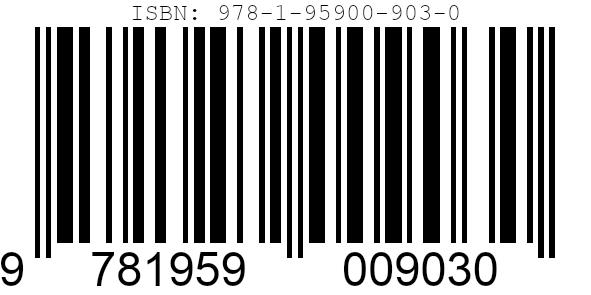
ISBN Selection
Authors often try and conserve costs. Getting the required ISBNs for your book is costly. Bowker, the main player in the US market, sells one ISBN for $125, or a block of
ten ISBNs for $295. If your book is in ebook and paperback formats, you will need two ISBNs, one for each version of the book.
Amazon offers free ISBNs. Sounds good right? Once you use Amazon’s free ISBN, you can’t take it with you to other platforms. Go to publish your book on B &N, or Apple Books and your ISBN is not usable. The other downside to this free ISBN is that it requires you to list Amazon as your imprint. This can detract from your book, as it is obvious your book is self-published; it may also deter other bookstores from carrying your book.
This is
something first-time authors learn the hard way. If they decide later to publish
the book on multiple platforms, they often must go through the process of republishing
their book as a new version with a new ISBN that they own. This is because a
new ISBN can only be issued if there are changes in text, format, or binding to
justify it. This can be costly in terms of both time and money.
Questions to ask yourself– are you willing to live with rookie mistakes? They can be costly to your brand and your wallet, as well as drag out and delay your publishing timeline.
With all of this in mind, there are several things to consider before choosing the best self-publishing book company for you and your manuscript.
Not all self-publishing book companies are created equal
Here are a few examples of self-publishing book company service offerings:
Company A – offers editing and proofreading
Company B – offers all steps from idea to published book, on sale on all major platforms – offers no marketing
Company C – offers all steps from idea to published book, on sale on all major platforms – offers book launch, book marketing and PR
When you hire a fully staffed self-publishing company where everything is done in-house, you get a ready made team. With a solo self-publishing consultant, you will also get a team, as they will quickly assemble trusted, vetted professionals from their network.
Before you hire a self-publishing company – 3 factors to consider
When you are looking to hire a self-publishing company, it’s important to understand what stage of the process you are in and what you need to bring your book to market. What are you as the author bringing to the party? Here are three questions to consider:
1. Is your manuscript written and edited?
Some authors get as far as they can
with their book and will tell us their manuscript is finished. They’ll look to
us to take it through the editing and proofreading process. Other authors come
to us with a fully edited manuscript that they have edited and proofread for
typos and grammatical errors.
When an author says their manuscript is
finished, this can mean two things. They have taken it as far as they can and
want help polishing and packaging it for publication, or, it is fully edited and
ready for publication.
2. Do you know what your goals are as an author?
Understanding your goals can have an impact on the publishing strategy you need. You may think of publishing your book as separate from marketing your book and may be planning to use different companies for each phase of your book’s journey. It is important to understand what your bigger author goals are, as they can have an impact on how and where you decide to publish your book. Your self-publishing company or self-publishing consultant should inquire about this and work with you to publish your book to help it meet your goals. Different goals can mean a different strategy is needed. Here are two examples:
A local real estate agent wants to publish a book to hand out to prospects. It will be their unforgettable business card. Their main goal is to stand out in their local market. Being published on Amazon is simply an added boost for them so that when someone googles their name, their book listing shows in their search results, adding additional credibility to them. However, they aren’t looking for sales on Amazon or to get national recognition or visibility. They need a simple strategy – Publishing in both paperback and eBook formats, and publishing only on Amazon may be sufficient for them.
A consultant looking to increase their reach, visibility, and credibility and presell more high-ticket clients will want the broadest reach, distribution, and credibility. They will want to have their book published on every possible platform [Amazon, Barnes & Noble, Apple Books, Kobo…], and they will want multiple book formats- paperback, eBook, audiobook, and possibly hardcover, as well as the option to have their books carried in bookstores and libraries. They will probably want a visibility campaign to get the word out about their book and reach more people.
3. How willl you handle marketing and book promotion?
The typical self-published author sells about five copies of their book. The average U.S. book now sells less than 200 copies per year, and less than 1000 copies over its lifetime. Books don’t automagically sell themselves, so you will want to have some kind of book launch and promotional plan. This may be something you look to your self-publishing book company or self-publishing consultant to provide, or you may have this covered elsewhere.
It is important to put time and thought into how your book will get out into the world, and who you want to have do that for you or with you, or if you plan to go totally solo and handle it on your own. Some self-publishing companies offer promotional strategies, guidance, or actual implementation. It may be included in your self-publishing package, as an add-on service, or by referral to partners who they can recommend to help you with this.
Comparing self-publishing book companies – what to look for
It’s important to define what publishing a book means to you, and how a self-publishing company defines it as a service offering before you hire them. I see a lot of confusion about what it means to publish a book; often clients think that a book launch promotion is part of book publishing. It can be, but it may not be, so this is an important point to clarify in advance of hiring a book publishing company or consultant, and choosing a publishing package. It’s important to understand how and what publishing a book means and what your self-publishing company defines it as and what it is exactly that they offer. Does your self-publishing package include any launch, promotion, or book marketing?
Define exactly what self-publishing a book means – make sure your self-publishing company is on the same page with you
Let’s go to the dictionary to shed some light on a few terms that may be being interchanged in the publishing process and can lead to some unintentional confusion.
► Publishing: The term publishing means, in the broadest sense, making something publicly known. Historically, it came to refer to the issuing of printed materials such as books and magazines.
What is the meaning of a published book? Produced or released for distribution
► Book Launch: A book launch is any even wherein the author or their public relations (PR) team invites a group of people to celebrate the arrival of an upcoming book
► Book Marketing: A book marketing plan includes publicity and promotional marketing efforts to help sell books and reach more readers
► Book Publicity: A plan and campaign designed to raise awareness about the book and create buzz. Unlike marketing, it’s goal are not specifically tied to selling books.
Conclusion
Choosing the right self-publishing company is an essential
part of the self-publishing process. Whatever publishing path you take, you need
to find the right platforms, companies, and resources to help you bring your
book to market.
Before looking for a self-publishing company, as we
discussed, it’s important to know your author goals, how much you want to do
yourself, and how much you want to outsource before you start evaluating the
self-publishing book company options.
The best self-publishing company for you will depend on your
publishing goals and which company offers the level of service and package you are seeking. It’s important to
carefully consider each company and that they offer services that match your
needs and goals before making a final decision.
Jane Tabachnick & Co. is a full service self-publishing book company. We work with non-fiction authors to help take them from idea through every stage of book publishing and book promotion. Find out more about working with us here
Listen to our podcast: The Self-Publishing Blueprint here

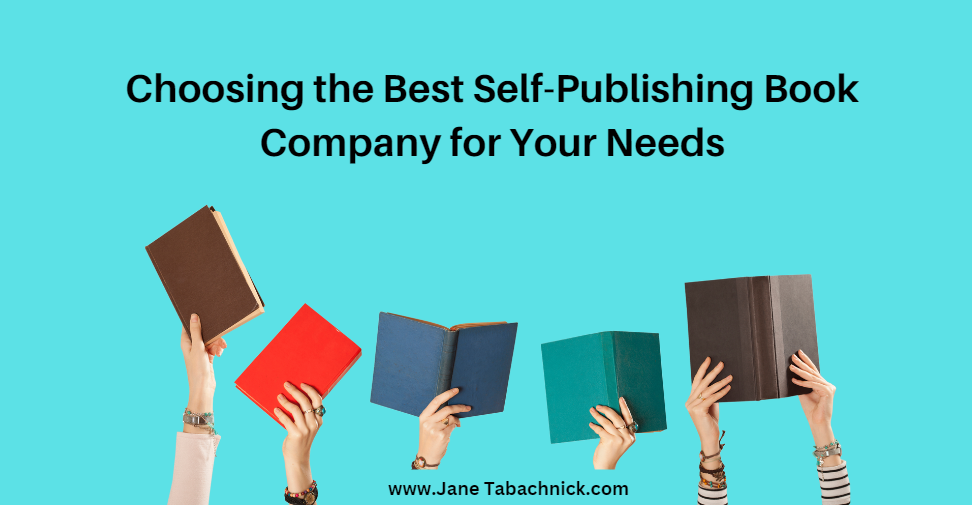
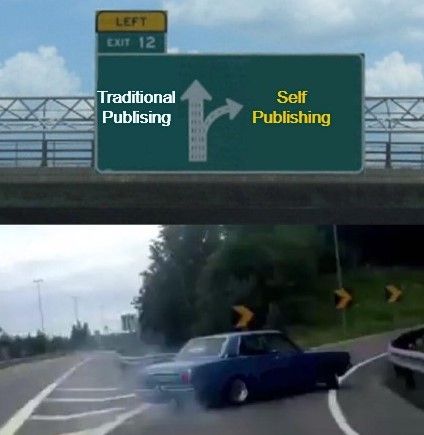
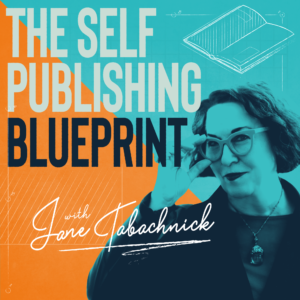
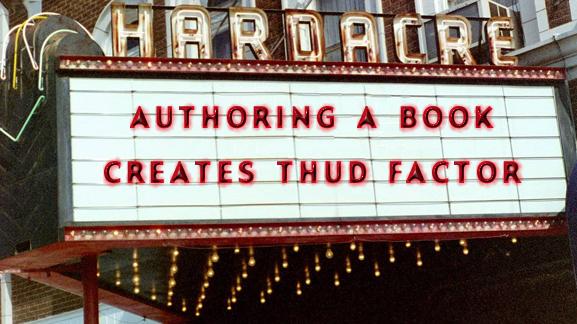
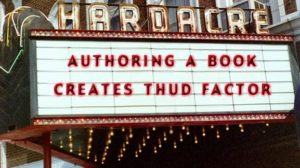
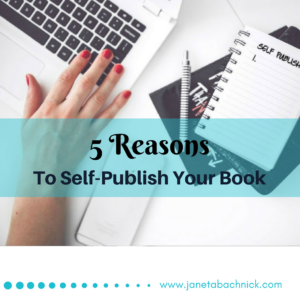
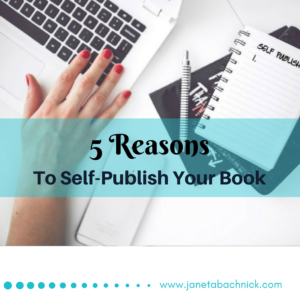 Authors often wonder should you self publish your book or seek out a traditional publisher. There are pros and cons to both avenues of publishing, so it’s important to understand them before making such an important decision.
Authors often wonder should you self publish your book or seek out a traditional publisher. There are pros and cons to both avenues of publishing, so it’s important to understand them before making such an important decision.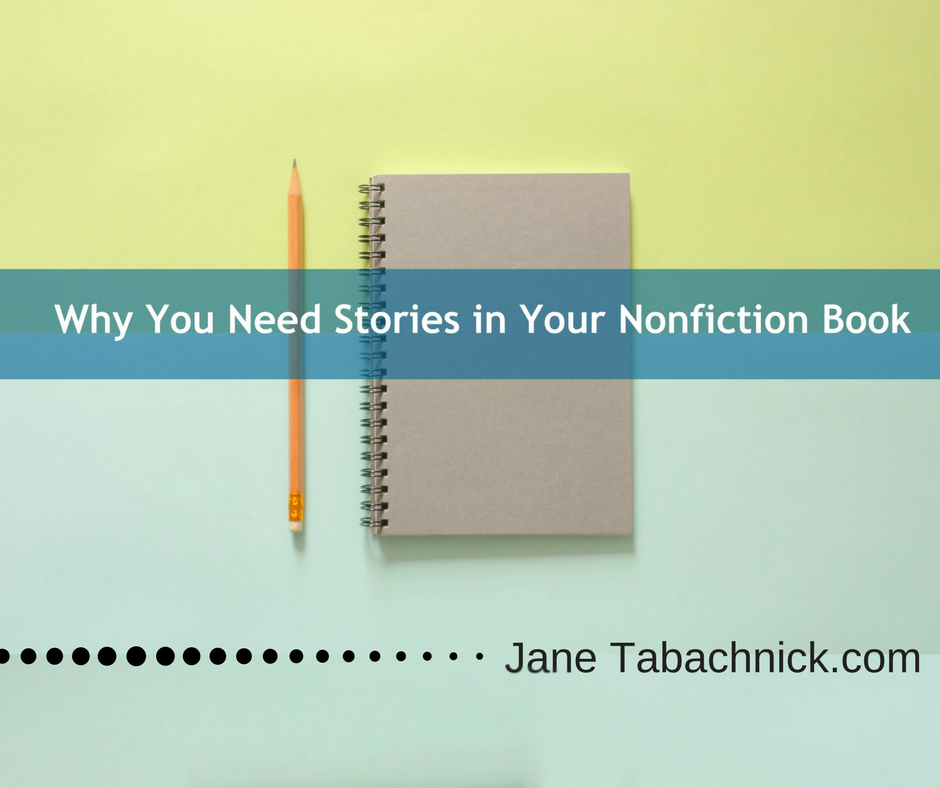
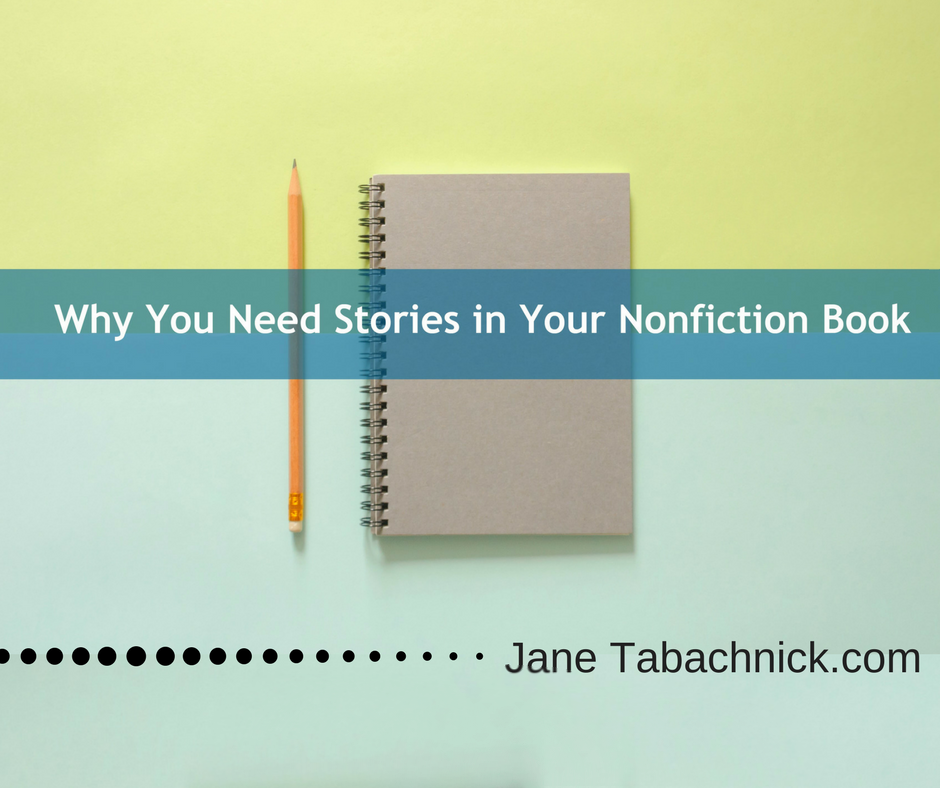 Our brains are wired for stories. They can create an emotional connection and are easier to remember than text or facts.
Our brains are wired for stories. They can create an emotional connection and are easier to remember than text or facts.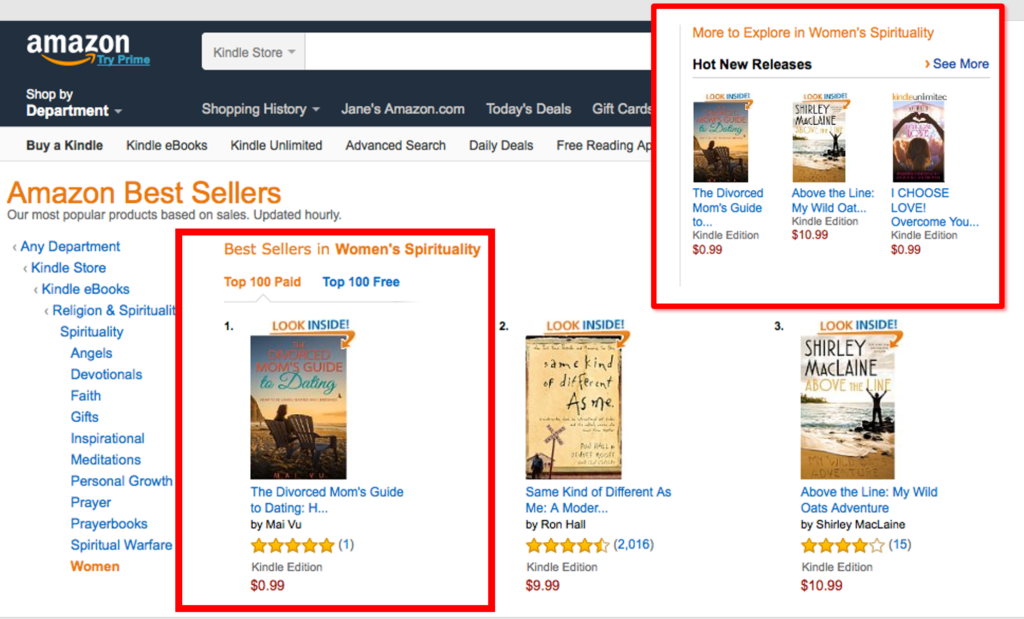
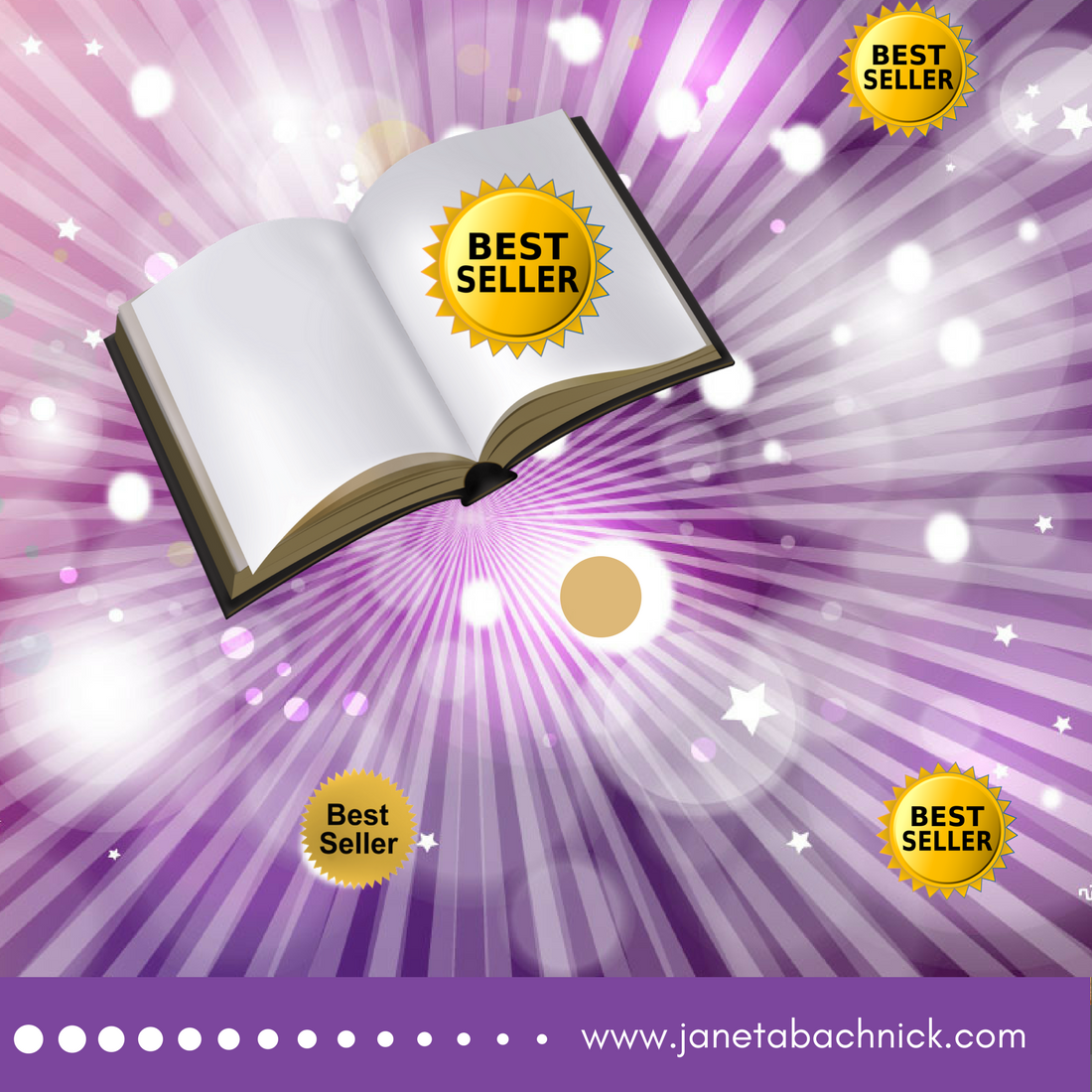
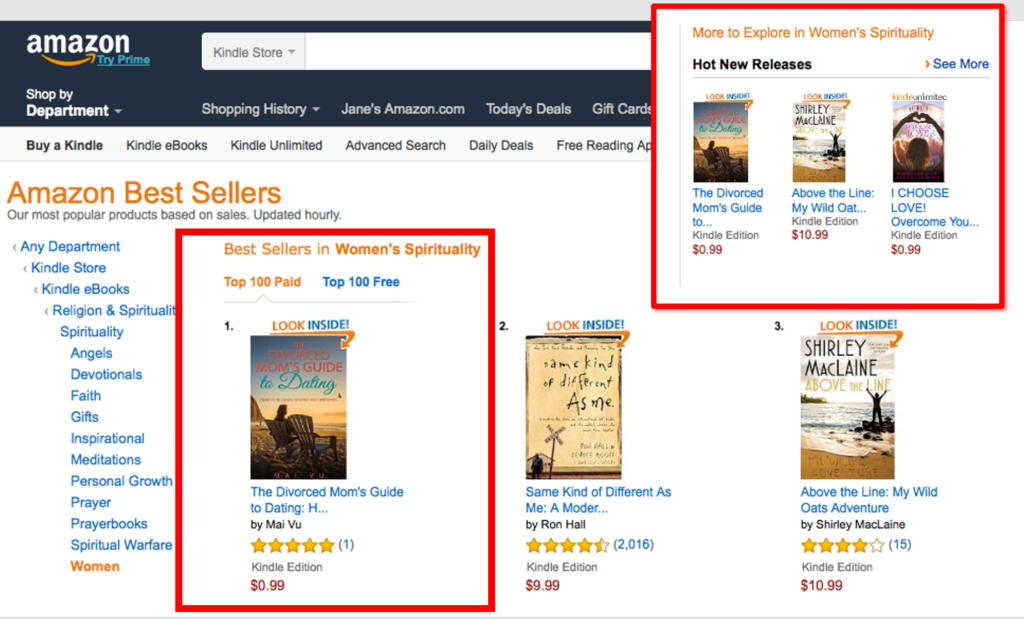
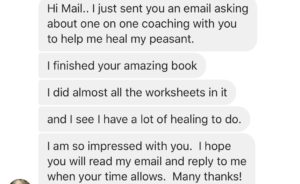
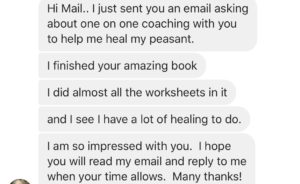 The message, which you can see in the image to the left, was from a reader, who was so excited and ready to sign up for coaching with Mai after reading her book that she emailed her and then sent her this message on Facebook to make sure Mai saw it as soon as possible.
The message, which you can see in the image to the left, was from a reader, who was so excited and ready to sign up for coaching with Mai after reading her book that she emailed her and then sent her this message on Facebook to make sure Mai saw it as soon as possible.